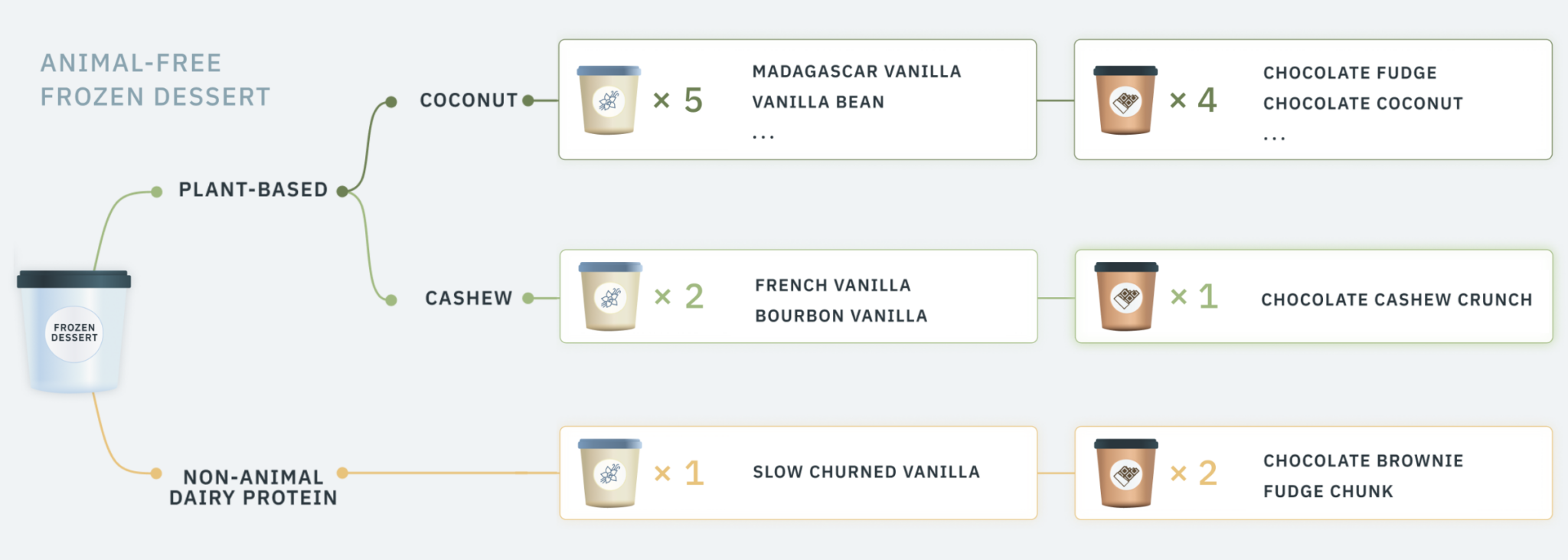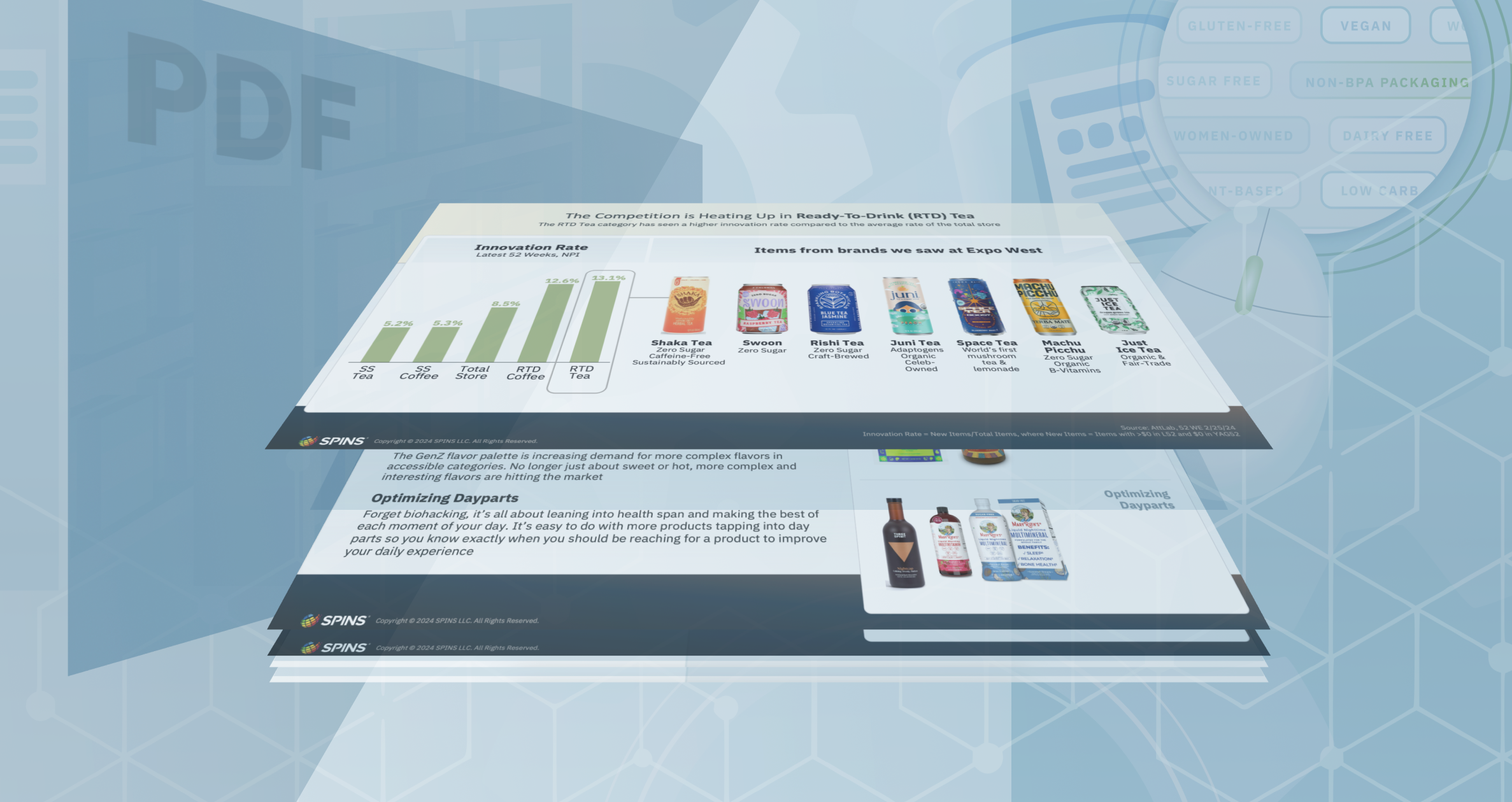Key Takeaways for Category Managers
Product Intelligence helps Category Managers:
- Understand existing assortment and category gaps to identify new opportunities
- Optimize category assortment to target values-oriented shoppers
- Streamline product acquisition and onboarding timelines
Plenty of category and merchandise managers go with their gut when making decisions. They’ve spent so much time in their category that they have an innate sixth sense when it comes to “the next big thing.” However, with the proliferation of new products and the physical restrictions on warehouse and shelf space, sometimes tough decisions need to be made. Product Intelligence gives category managers the power to validate trend predictions with data.
Using Product Intelligence as the foundation of assortment optimization means having a unified database with a normalized hierarchy—in other words, a common language—that category managers can use to understand their existing catalog. The more in-depth this database is, the more value it provides.
Product Intelligence is how a frozen food category manager easily understands that of the dozens of frozen desserts they stock:
- 15 products across 6 brands are alternatives to animal-derived frozen desserts
- 3 use non-animal dairy protein
- The other 12 are plant-based, 9 of which are coconut-based, and the other 3 are cashew
- All of them are chocolate or vanilla flavored

RELATED: How Product Intelligence Supports the Retail Shopping Experience
With this knowledge in hand, the category manager easily understands that despite the selection of animal-free and plant-based options they maintain, they’re missing out on flavor diversity and allergen-conscious options.
Extending this example, Product Intelligence means category managers can also easily review product sales in the last several quarters, determine any commonalities between them, e.g., no added sugar, no palm oil, B Corp certified, etc., and look for new products with those qualities.
In this way, category managers can get a more nuanced view of their shoppers and hone in on what makes their assortment unique. This allows them to differentiate themselves not just from other local retailers, but also online vendors who shoppers may turn to because they can’t find what they’re looking for in stores.
Beyond Assortment Optimization
In addition to streamlining product discovery, the automated nature of product onboarding that modern Product Intelligence provides means streamlined data availability. This leads to reduced data turnaround times and cuts onboarding from a process that can take months down to just a few days! Automated data onboarding ensures retailers can reflect seasonal assortment updates before the season is already half over.
Modern Product Intelligence solutions also allow for significant customization—including building internal regulatory standards into the onboarding algorithm. No more wasting time sourcing products that will never make it onto shelves!
RELATED: What Makes Quality Data?
Measuring ROI: Category Management
While measuring the ROI from a PI solution varies depending on the use case, the ROI gained from deploying and adopting PI across a retailer’s business units is incremental. The more teams that use it, the more cost-effective it becomes. Strategic deployment of PI across an organization drives immense operational efficiencies that are flexible enough to drive value across the entire retail ecosystem.
Questions category managers can ask themselves to see where Product Intelligence is driving returns include questions around:
- Product acquisition timelines:
- Do category managers evaluate new products faster? Has this translated to more new products on shelves while removing underperforming ones?
- Do new products get on the shelf faster?
- Has time been saved from built-in regulatory verification?
- Product data onboarding timelines:
- Have engineering hours spent setting up data pipelines decreased?
- Have engineering hours spent transforming data into the appropriate format decreased?
Remember that Product Intelligence solutions shouldn’t be evaluated in the vacuum of a single department’s use cases! While Product Intelligence can significantly improve Category Management workflows, the true value of Product Intelligence is the business transformation from deploying it across all retailer touch points.




